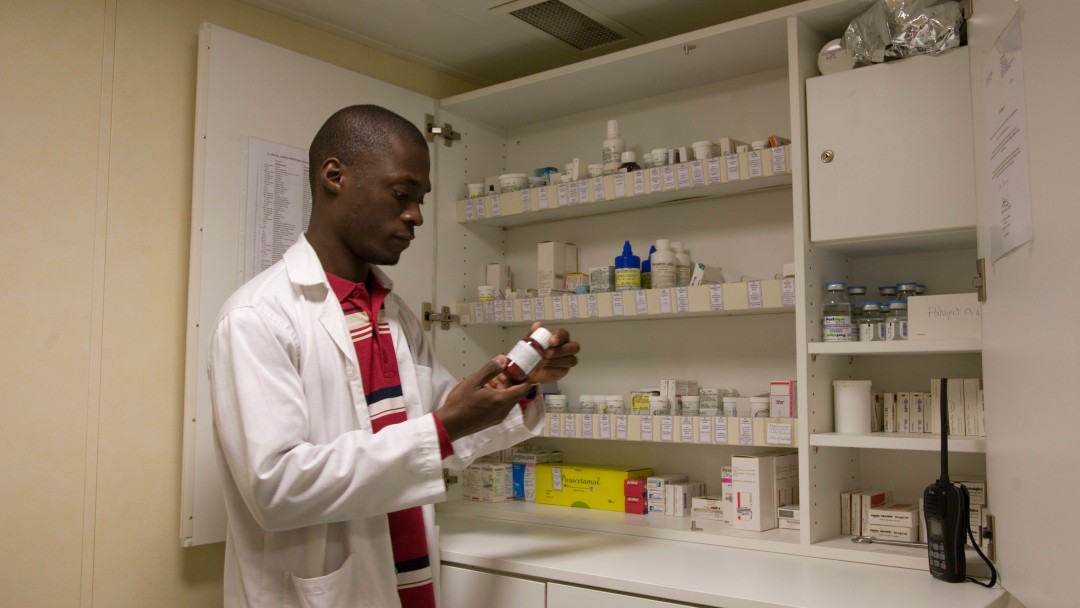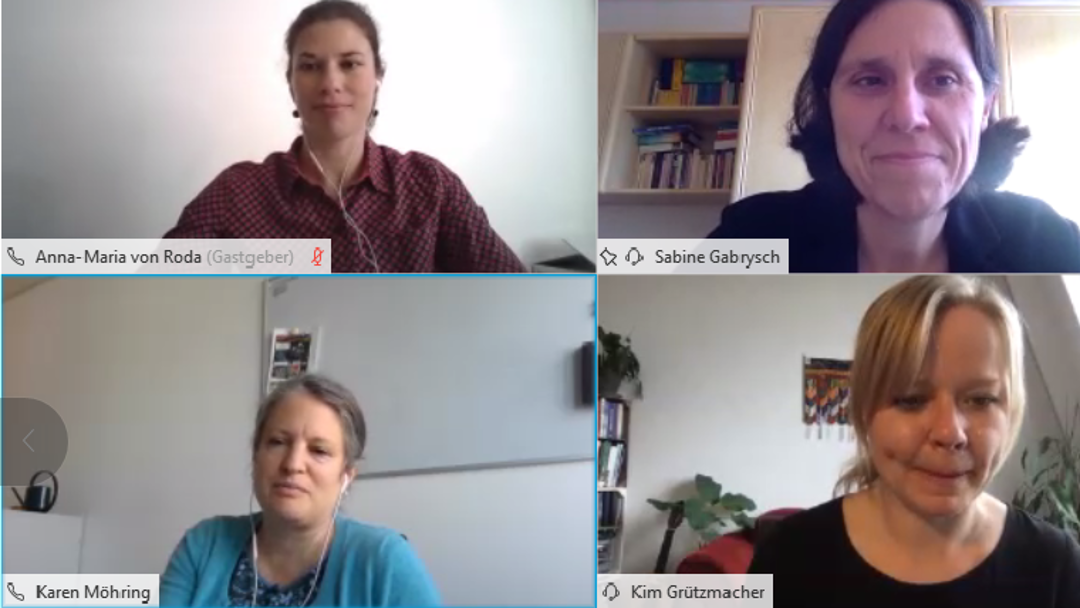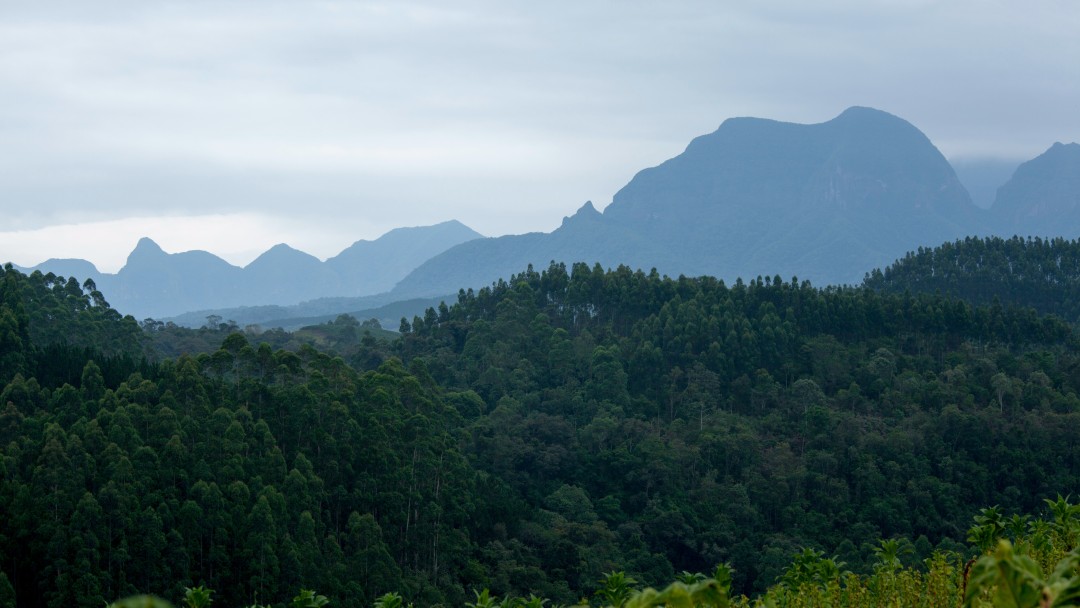News from 2020-11-04 / KfW Development Bank
One Health - Health is not divisible
The pandemic shows that events on the other side of the world can reach as far as here

The COVID-19 pandemic has drastically shown us that health cannot be taken for granted and that mankind is putting it at risk by penetrating ever deeper into nature. It is not yet fully understood how the virus was able to spread to humans, but scientists believe that zoonoses are the most plausible explanation; these are infectious diseases that can be transmitted between humans and animals. Wild animals are involved in more than 70% of them - even the current pathogen is said to have come from wild animals.
This makes it all the more important to consider humans, animals and the environment as a single entity. Only if they coexist and interact with each other as beneficially as possible can the survival of all be assured. This view, which has gained new momentum and relevance through COVID-19, is known as the One Health approach. In development cooperation, it has been a topic of discussion for quite some time; it is also found as a so-called "initiative topic" in the 2030 Strategy of the German Ministry for Economic Cooperation and Development (BMZ), which was adopted before the outbreak of the pandemic.
Reduce pandemic risks at all costs
Why the One Health approach is important, what exactly it encompasses and where KfW Development Bank already contributes to it or could become more involved in the future was the subject of a digital discussion between KfW Development Bank and the two scientists Professor Dr Dr Sabine Gabrysch and Dr Kim Grützmacher. Sabine Gabrysch is Professor of Climate Change and Health at the Charité hospital in Berlin and heads the Climate Change and Health Department at the Potsdam Institute for Climate Impact Research. She is a member of the "One Health" advisory board of the BMZ. Dr Kim Grützmacher studied veterinary medicine and works as a programme manager in the health programme of the Wildlife Conservation Society (WCS). She is also deputy chair of the BMZ's "One Health" advisory board.

In their keynote speeches, both left no doubt that pandemics like the current one - perhaps even worse - will occur repeatedly if mankind continues to live at the expense of nature. That is, if we continue to degrade ecosystems: for example, through road construction, mining, deforestation, the expansion of cities and settlements, through wars, harmful agricultural practices such as monocultures, or the massive use of antibiotics. They are all regarded as drivers and enhancers of contact with wildlife. With increasing degradation, this contact increases - and with it the risk of pathogens being skipped. Weak health systems, deficient nutrition and global mobility enhance the risk even further. Therefore, it is essential to better understand and manage the systematic connections between human health, animal health and health of the environment.
A comprehensive approach to health
Zoonoses cannot be avoided completely in the future, as both speakers agreed. Responding to them with strong health systems is important, but not sufficient. In fact, the root causes must be tackled by protecting forests and biodiversity, promoting sustainable agriculture, conserving resources and wetlands, for example, while taking a comprehensive and cross-sectoral approach. It is exactly these kinds of systematic connections that are made by the One Health Approach.

And it is precisely what KfW Development Bank intends to promote through its portfolio; it supports countries in building solid health systems on the one hand and in preserving natural resources on the other. "Habitat protection and protected areas are absolutely essential to reduce the risks of future pandemics," said Kim Grützmacher. And where countries are not able to do this on their own, KfW tries to provide support.
Prevention is 500 times cheaper
Prevention is also much cheaper than dealing with the negative consequences later on, as Grützmacher reported citing a study: For example, the fight against the pandemic costs 500 times more than preserving tropical forests worldwide, thus significantly reducing the transmission of diseases. All the more so as this is accompanied by other benefits that are not even included in this calculation: Biodiversity is preserved, forests stabilise the climate, are important for the water balance and much more.
The pandemic has once again clearly shown that it matters what happens on the other side of the globe, and that development cooperation is therefore not just charity, but is in our own interest. Because everything is connected with everything else. "We need a comprehensive health concept in the age of the Anthropocene," Professor Gabrysch put it in a nutshell, because "the earth is suffering from an advanced Homo sapiens infestation.”

Share page
To share the content of this page with your network, click on one of the icons below.
Note on data protection: When you share content, your personal data is transferred to the selected network.
Data protection
Alternatively, you can also copy the short link: https://www.kfw-entwicklungsbank.de/s/enzBWrMC.CWUA
Copy link Link copied